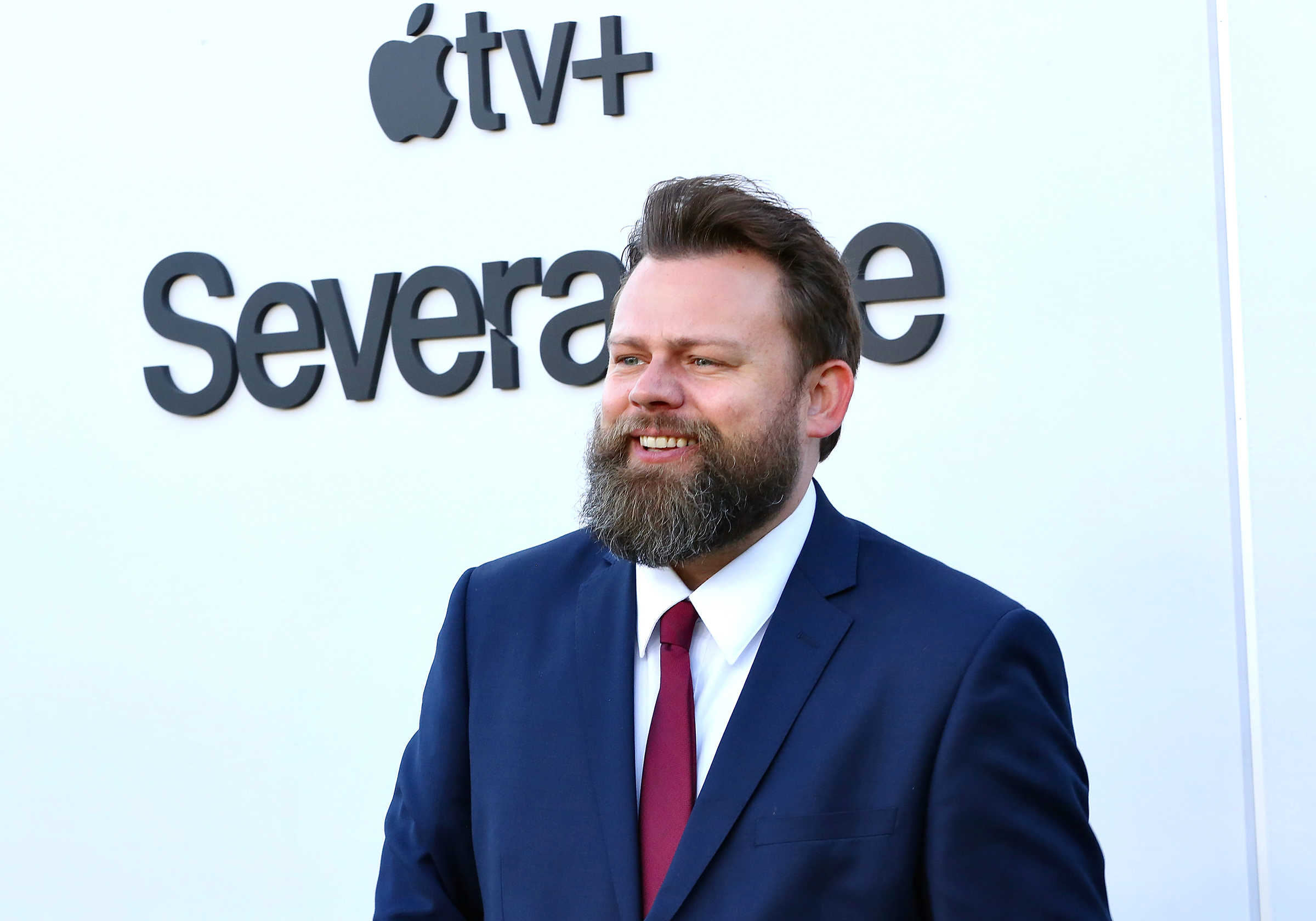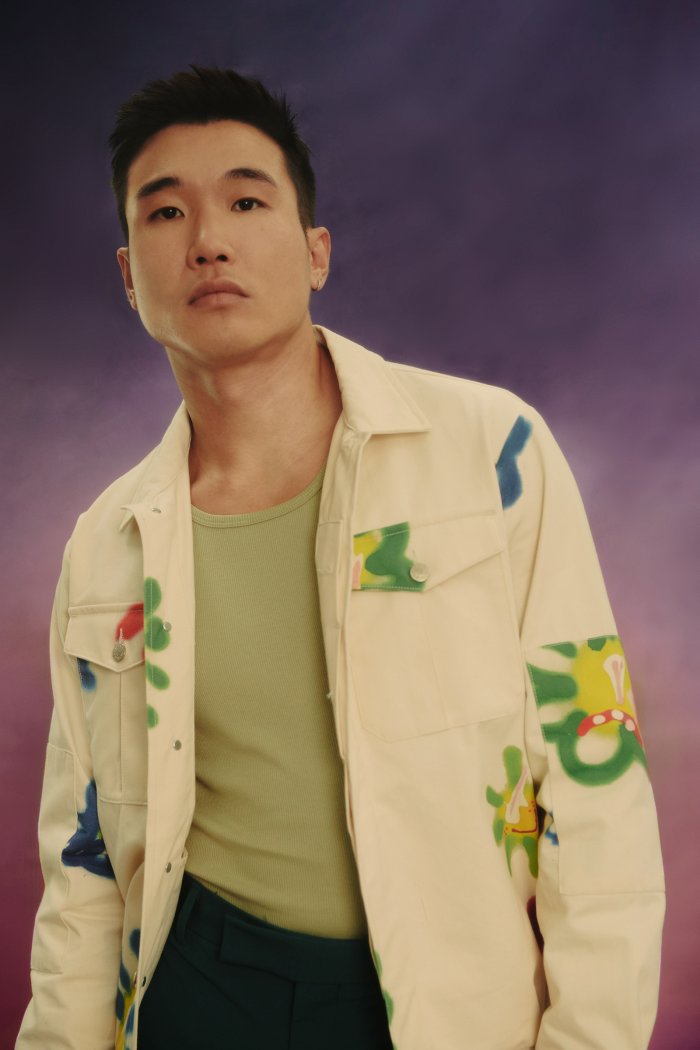When Dan Erickson first pitched Severance, he told me he got the idea while working “in a door factory.” It took me saying that out loud a couple of times to realize it wasn’t a literal door factory. Dan was referring to his ability to take the ordinary and frame it in a way that seems slightly different—and much more interesting. His work opens doors to new ways of thinking about our circumstances. With Severance, he’s formed a world that allows us the space to connect with an existential dread we all share about what this whole “life” and “identity” thing is all about. And he’s done it through the lens of a workplace comedy, a genre he has commandeered and reinvented.
The show’s scenario is simple. What if there was a chip that could allow you to go to work and not have to remember being there? The technology raises important questions: Who are we if we are not aware of our past experience? Would that memory-free self have an identity? Dan placed those big ideas in a banal workplace with banter inspired by genre OGs like The Office. When he wrote the first draft of the pilot 10 years ago, Dan couldn’t have known that his vision would connect so deeply with where we are now. But as with many people who think slightly differently, his ideas are more than slightly profound.
Stiller is an Emmy-winning writer and served as a director and executive producer on Severance
- Cybersecurity Experts Are Sounding the Alarm on DOGE
- Meet the 2025 Women of the Year
- The Harsh Truth About Disability Inclusion
- Why Do More Young Adults Have Cancer?
- Colman Domingo Leads With Radical Love
- How to Get Better at Doing Things Alone
- Michelle Zauner Stares Down the Darkness





